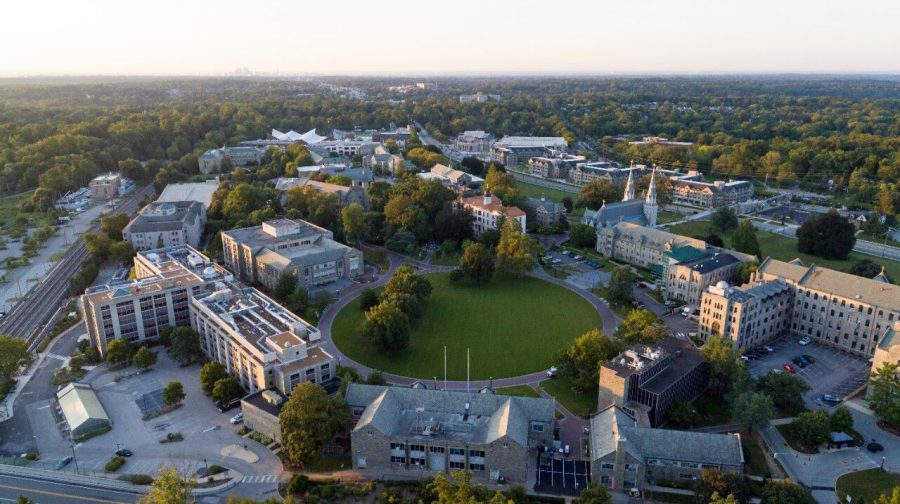Recent Email Still Shows Problems with the University’s COVID-19 Efforts
Courtesy of Villanova University
The University has had record-high COVID-19 cases in recent days.
February 5, 2021
In the early afternoon of Friday, February 5th, Rev. Peter M. Donohue, OSA, Ph.D. sent an email to students titled SLOW THE SPREAD Student Directives: Effective Immediately, outlining various new restrictions on campus life to help stop the spread of COVID-19 over the next two weeks. There are 444 active cases of the virus at Villanova as of February 4th, with the total number increasing rapidly each day as per the University’s COVID-19 dashboard. The new measures implemented hope to decrease these numbers to avoid a possible shutdown for the rest of the semester, but are the things found in the email really anything substantial?
According to the email, the main restrictions placed on students for the next two weeks mostly involve limiting travel away from campus, disallowing students from gathering in residence halls, and further restricting seating in dining halls. Additionally, students’ Wildcards will also no longer work when trying to gain access to residence halls that they do not live in.
However, a large portion of the email deals with topics that have already been discussed before. There is no need to include an entire section on mask-wearing and social distancing when this has been something constantly urged to the student body over the past several months. Instead of including this, more new restrictions should have been included that would further control the spread instead of the generic warnings we have seen countless times.
The new restrictions place the responsibility of maintaining campus safety mainly on the students, while in the same email, blames them for rise in cases. This is counterintuitive in fighting the spread; how can these restrictions be followed if many of the COVID-19 guidelines already implemented were not being followed by students in the first place?
There are many obvious ways to violate these restrictions that many have figured out already. People can simply open the door for students trying to enter a residence hall they do not belong in. Furthermore, how would staff know if students are having social gatherings in certain dorms? How would they know if students have left campus? What is stopping students from just moving seats in dining areas like they have already been doing since arriving on campus? The answer is there is no way of controlling these factors when the responsibility is placed onto the students, making many of these rules futile.
These new restrictions could work in an ideal world, but the reality of things shows that many students still will not follow these new guidelines. A simple way to increase their effectiveness is to have staff themselves enforce them. There need to be people correcting students who are not following these guidelines at an increased rate. There also need to be people making sure students are not having unsafe gatherings, which seem to be the cause of the large number of cases seen on campus. Rules in general will not work unless they are enforced, and the University needs to see that.
While it seems that I am advocating for all of the responsibility to be shifted from the students to the staff, a portion of it should still be on the students. We are the ones who are affected the most by this because it is what determines our college experience, so we have to make conscious efforts to preserve that during these difficult times.
Following these guidelines would do great deals in stopping the spread, with a lot of it resting in our hands. A collaborative effort from both staff and students is the most ideal way to handle the situation.
This email and the new guidelines that come with it are a step in the right direction towards controlling the recent spike of cases, but things like this need to come more frequently. More communication can go a long way to make sure all of the students are on the same page in helping combat the spread of COVID-19. All we can do now is hope that over the next two weeks, these restrictions help make campus life more sustainable, or else we will see ourselves in a similar situation as last semester.
We all need to do our part to uphold the University guidelines and stop the spread.


